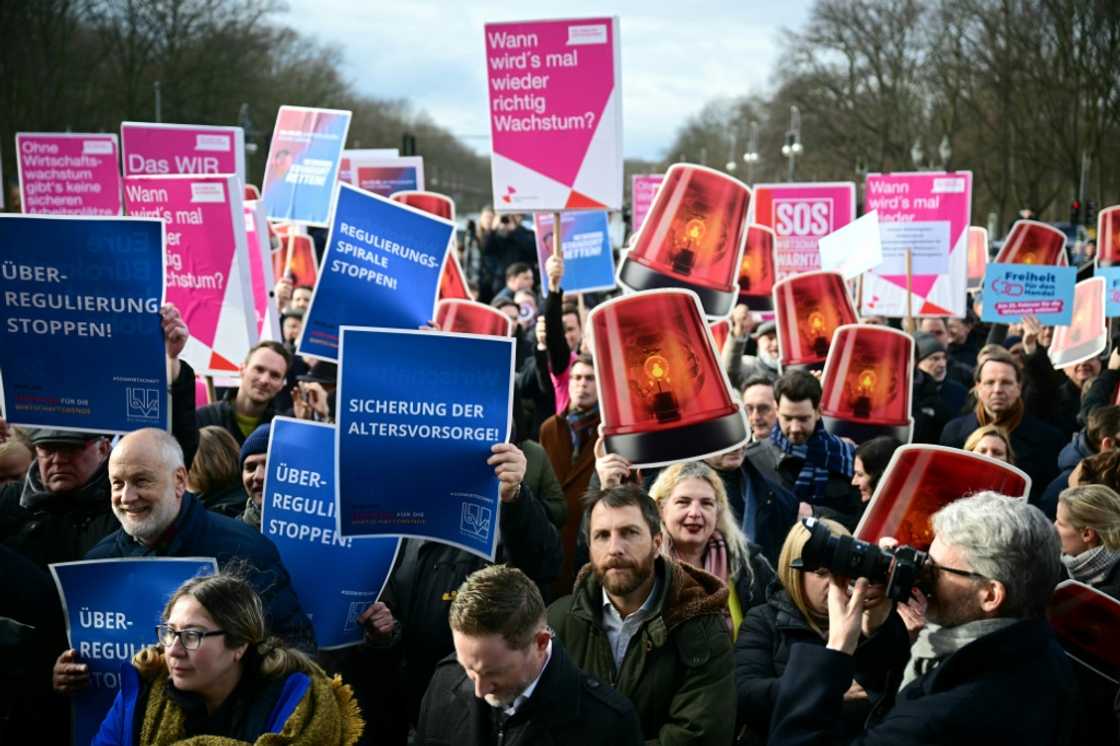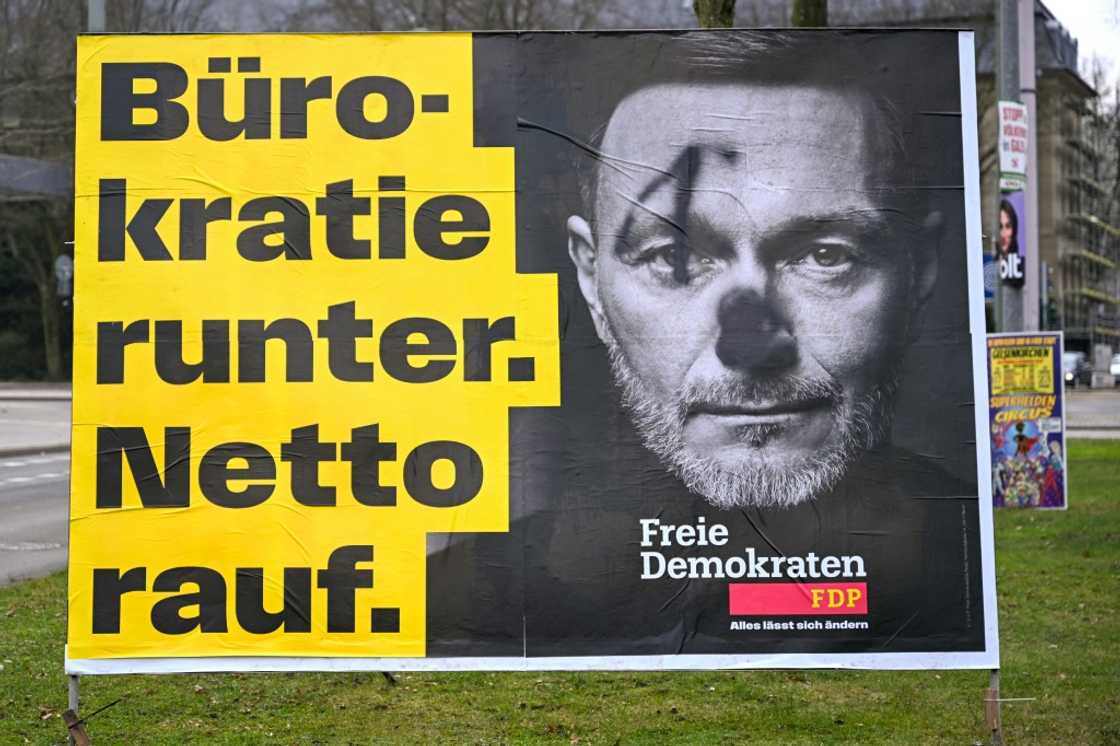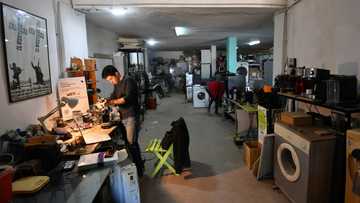German 'bureaucracy monster' on everyone's election hit list

Source: AFP
German politicians make a lot of laws and regulations but on the campaign trail many rage against the country's notorious bureaucracy, labelling it a monster that needs to be slayed.
Whatever else divides them, almost all candidates in the February 23 vote agree with the popular idea that Europe's biggest economy needs to slash back its thicket of rules, often labelled a "jungle of paragraphs".
Some want to take a chainsaw to it all, inspired by Argentina's neoliberal President Javier Milei, even if their true intent at times may be to weaken troublesome labour or environmental standards.
Conservative poll frontrunner Friedrich Merz -- who once famously argued a tax return should fit onto a beer coaster -- has vowed to go to war against the "bureaucracy monster".
Merz and others want to free companies from national and EU reporting obligations, especially the Supply Chain Due Diligence Act, that they regard as headache-inducing as its German tongue twister name, the "Lieferkettensorgfaltspflichtengesetz".
Tech billionaire Elon Musk, in a controversial recent online chat to support Germany's far-right AfD, claimed that the approval documents for his Tesla plant near Berlin amounted to an entire truckload of paper, each page stamped by hand.
'Suffocated'
At a recent Berlin protest called by business groups who demanded steps to revive the stagnating economy, property firm manager Urs Moeller, 44, fumed about being "suffocated" by red tape.

Source: AFP
"The accident insurance people keep inventing new procedures where they do nothing but send us a bill," he told AFP.
"Taxes and bureaucracy are making it harder and harder to be efficient and pay attractive wages."
The problem is real, and there is a report to prove it. The number of regulations has grown by 18 percent in Germany since 2014, according to government figures.
Critics charge that the time workers spent doing paperwork is a serious problem for a struggling economy already battered by high energy costs and growing Chinese competition.
Time spent filling in forms cost the German economy 65 billion euros ($67 billion), says the Normenkontrollrat,
an independent body advising the government on regulation.
The Ifo economic institute, factoring in a series of indirect costs, puts the figure even higher -- at a whopping 146 billion euros or 3.4 percent of German economic output.
Digitisation is often touted as the answer -- the foreign ministry this year was proud to announce it had finally moved visa applications online -- but IT does not always prove to be the magic bullet.
Lutz Krause, who owns a construction company, said a new electronic invoicing system designed to help the government keep better track of receipts was causing paperwork to multiply.
And there are other issues -- he said government clients were now the most difficult to deal with.
To get work on a construction site at Berlin Airport, he said, employees had to pass a security course that included written exams.
"More and more, we're just avoiding government work," he said.
'Red tape radar'
German bureaucracy, according to Ifo rankings, is far heavier than in France or the Nordic countries, though not as onerous as in some other developed nations.

Source: AFP
Like many other Europeans, Germans complain of a rising tide of EU rules emanating in Brussels.
The problem is made worse by German federalism, according to Ifo economist Oliver Falck, since the country's 16 states often implement EU directives in different ways.
Germany's tradition of decentralised administration only adds to the problem since "companies often have to give information to someone that they have already given to someone else
he said.
The western state of Hesse has tried to fight this perception by appointing a minister for de-bureaucratisation, Manfred Pentz.
He is proud of the "red tape radar", an online service through which 6,700 people have reported problems in dealing with authorities.
"Bureaucracy needs to be tackled so the economy can work again, so people aren't turned off by the government," he said.
But economist Falck is sceptical that much will change, having seen little progress in the past 20 years despite the subject never quite leaving the headlines.
Businessman Krause shares that fear: "Germans seem to have paperwork in their DNA."
PAY ATTENTION: Сheck out news that is picked exactly for YOU ➡️ find the “Recommended for you” block on the home page and enjoy!
Source: AFP






